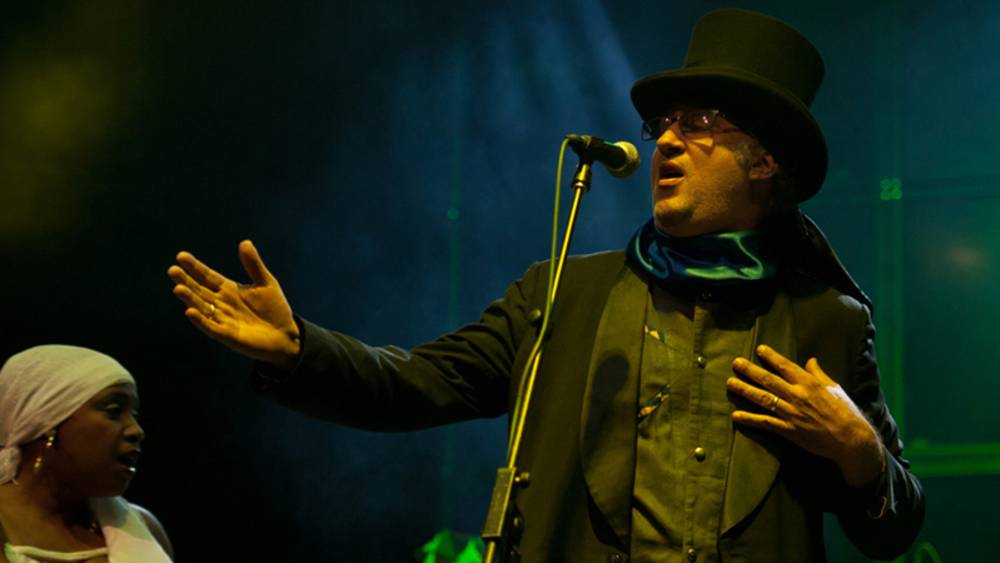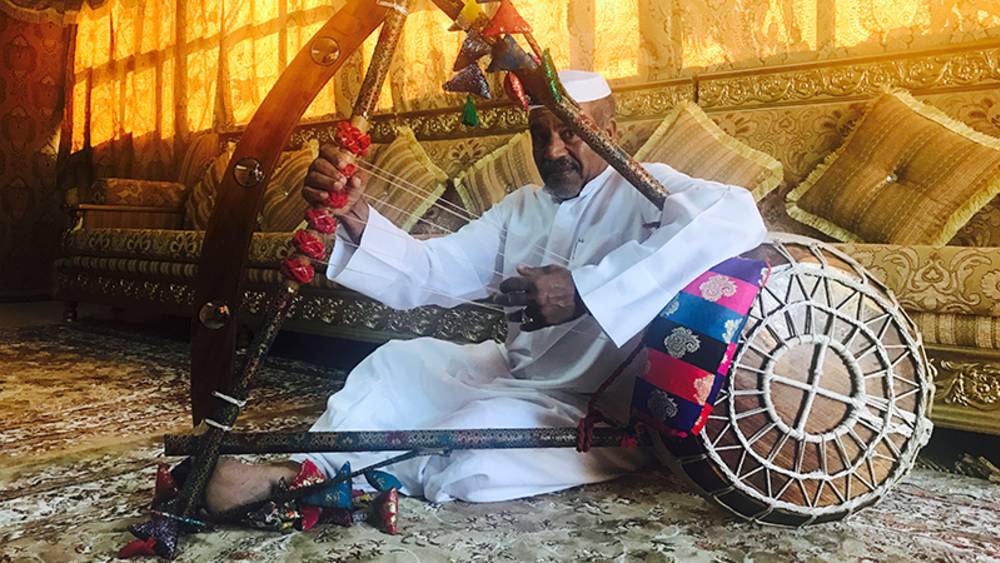Barzakh Festival – Day 2 – The Ex + Fendika, RAM, and Al Nuban Folklore Troupe
A musical meeting place of genre-shattering artists featuring Arabic Dabke, electronic Angolan EDM, Haitian vodou rock, Ethiopian traditional + Dutch punk, and Emirati roots.
Book for both days. Get your 2 day pass and save. See Get Tickets and Ticket Info. Limited availability, Book early!
Thursday, Mar 1 @ 7:30pm
- A stunning collaboration between legendary Dutch punk adventurers The Ex + Fendika, Ethiopia’s pre-eminent traditional dancers and musicians.
- Haiti’s RAM powerfully blend rock, traditional Haitian sounds, and vibrant voudou rhythms and lyrics.
- Al Nuban Folklore Troupe – Preserving an Afro-Emirati tradition with nearly 20 dancers, accompanied by a tanboura, drums, manjour, and call and response vocals.
The Ex + Fendika Trailer
The Ex + Fendika – A stunning collaboration between legendary Dutch adventurers The Ex + Fendika, Ethiopia’s pre-eminent dancers and acoustic musicians.
Born out of the punk explosion in 1979, when anything and everything was possible, Amsterdam’s The Ex has been at the forefront of adventurous music for nearly four decades. The legendary band pretty much play anywhere in the world, and have a deep ongoing collaboration with Ethiopian musicians and dancers. Fendika consists of some of the best traditional Azmari (griot-like storyteller) musicians and dancers, led by the remarkable eskista dancer and cultural entrepreneur Melaku Belay, impresario of Addis Ababa’s influential night spot, Fendika Azmari Bet. Melaku + The Ex first collaborated together with Ethiopia’s legendary late saxophonist Getatchew Mekuria over a decade ago. Since then, their partnership has expanded, with numerous tours, an album and a 7” single featuring the typical Ex rhythms and riffs, combined with traditional instruments (one string masinko, krar, kebero drums) and powerhouse vocals.
“The Ex are legends in their country, and after witnessing such beautiful expression of art crossing borders of genre, nationality, and style, it’s easy to see why.” – Consequence of Sound
“Melaku Belay, an electrifying dancer and in many ways the Ethiopian cultural ambassador of the hour” – Afropop Worldwide
RAM Trailer
RAM powerfully blend rock with traditional Afro-Haitian sounds and lyrics, fueled by ceremonial vodou rhythms, driving street music, syncopated rara horns, and searing punk-inflected electric guitars. In an era when many Haitian artists have felt forced to flee the troubled island, RAM still plays regular Thursday night shows at the historic Hotel Oloffson in downtown Port-au-Prince. RAM first gained worldwide attention in 1993, when its song “Ibo Lele (Dreams Come True)” was included in the soundtrack to Jonathan Demme’s film Philadelphia. Their latest album RAM 6: Manmanm Se Ginen, was mixed by Grammy Award winning producer Andrew Weiss, who is working with them on their forthcoming RAM 7.
“Tradition is honored, preserved, and innovated all at the same time, uplifting the people during these troubled times…[a] one-of-a-kind experiences — hypnotic drums, transfixing horns, shredding guitars, riveting dancers. Spirits are soaring” – Vice Noisey
Al Nuban Folklore Troupe
See their feature here
Al Nuban are one of the last groups dedicated to the ancient Afro-Emirati tradition, which traces its roots to Sudan and used to be one of the must-have fixtures at celebrations, weddings, sports competitions’ and significant events in Dubai. Led by Taher Ismael, two lines of nearly 20 dancers face one another to “play”, accompanied by a tanboura, drums, manjour, and call and response vocals.
“The scene is one unchanged for generations: the male and female dancers face each other and move in steps in rows while dancing and singing to the rhythm of a stringed instrument, the tanbourah. Drums beat in a mesmerising tempo and accompany the swishing of the manjur, which is made of cloth with goat hooves sewn onto it. It is a remarkable, one-of-a-kind musical instrument, tied around a dancer’s hip, creating a swishing sound as the performer sways to the rhythm of the music, dictating the pace for the dancers… Ismail is considered [Nuban’s] last maestro…his haunting performances of the Nuban have been immortalised in a series of recordings by the Sharjah cultural department” – The National

